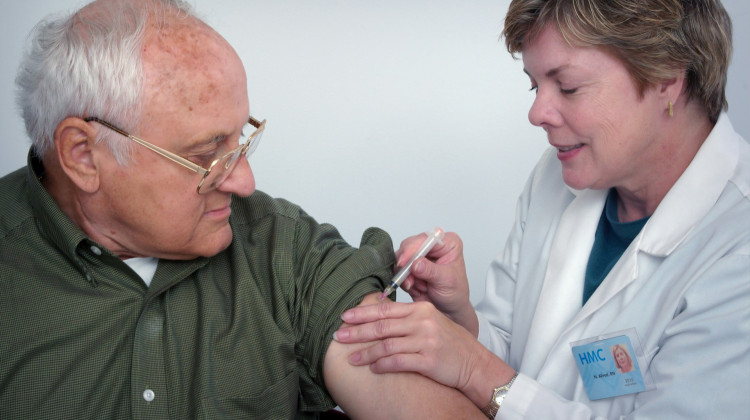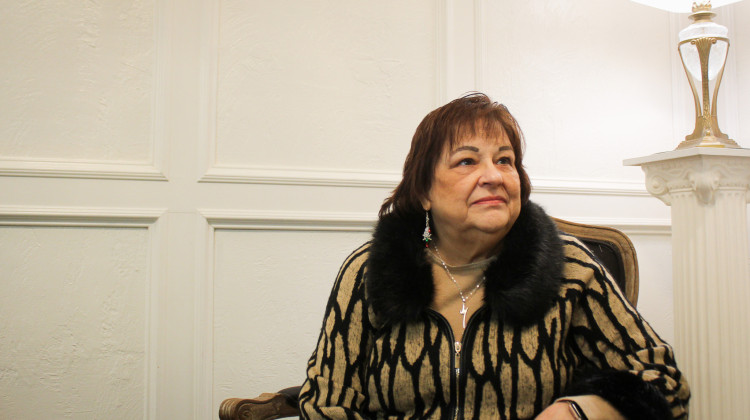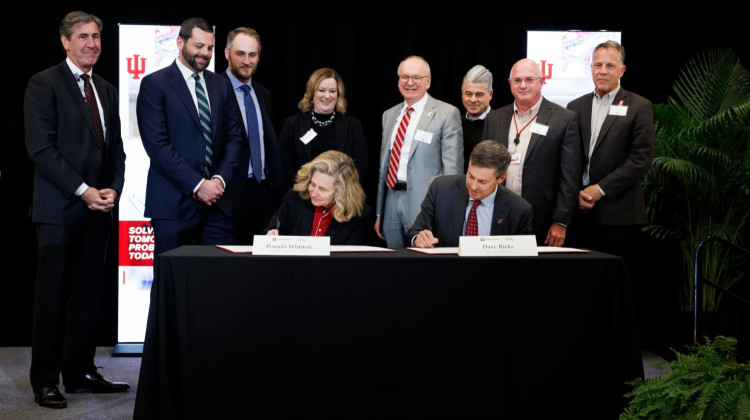
An online search of Indianapolis nursing jobs spotlights the ongoing wage-war fueled by the shortage.
(Viki Mohamad/Unsplash)As COVID-19 cases climb amid the rapidly spreading delta variant, overburdened health care workers and short-staffed hospitals are experiencing the effects of the latest surge.
In Indiana, statewide availability of intensive care unit beds and ventilators is not critical — especially compared to other states. However, some in the industry are warning statewide capacity data doesn’t reflect the true state of hospitals.
“The data really, largely represents kind of the physical capacity, the space, the equipment,” Brian Tabor, president of the Indiana Hospital Association, said, but it doesn’t represent the workforce required to staff these beds.
A shortage of nurses has been a concern for years. However, the pandemic appears to have accelerated this trend — nurses who delayed retirement in the face of COVID-19 are finishing their careers, or some choose to retire early.
“I think that most nurses felt like we would be in a better place at this time,” Emily Sego, president of the Indiana State Nurses Association, said. “And I think there's a little bit of feeling of impending doom ... and it's just really starting to take a toll on them.”
Other nurses are leaving hospital jobs or abandoning health care entirely.
“We're going into this next surge with little, you know, little to less staff than what we had before,” Sego said. “That's the scary part of this.”
An online search of Indianapolis nursing jobs spotlights the ongoing wage-war fueled by the shortage. Some jobs are offering $7,500 sign-on bonuses. A weekly pay of $2,500 for travel nurses is becoming normal. These new compensation perks can outpace the salary of current staff nurses. In COVID-19 hotspots, some travel nurses — health care professionals who work at hospitals in different cities or states based on need — have seen salaries as high as $10,000 a week.
Greg Buckingham, an ICU nurse at Franscican Health, said his colleagues are leaving bedside nursing — a mentally and physically intense profession — for other, less stressful nursing jobs.
“There's not enough nurses to take care of the people,” Buckingham said. “I mean, we make it work, because that's what we do, but people leave in droves.”
A hospital bed will be closed rather than provide unsafe care, Buckingham said. However, it creates a difficult system of juggling patients and longer wait times.
In recent weeks, almost all of Indianapolis’ major hospitals have been on diversion, a process when hospitals request ambulances take patients elsewhere. A Franscican hospital spokesperson said the staffing shortages are being felt across the city.
“When you have poor staffing levels, the quality does suffer,” Sego said. “So that is a huge concern.”
Indiana has not experienced the surge felt in southern states — like Alabama and Arkansas. There, the low vaccination rates have pushed hospitals into crisis, and other states are fielding requests to take patients.
“If we pick up our pace, we can stay ahead of [the surge],” Tabor said. “If we don't, we may fall behind and I am concerned about what happens at that point.”
Very few vaccinated people are hospitalized for COVID-19. In Indiana, only 0.0009 percent of fully vaccinated Hoosiers have been hospitalized for COVID-19, according to state data.
“This surge that we're seeing right now is an epidemic among the unvaccinated,” said Brian Dixon, Regenstrief Institute’s Director of Public Health Informatics.
While the vaccine appears to be less effective against infection from the delta variant, the vaccine’s ability to prevent hospitalization or death remains stable.
Buckingham said he hasn’t taken care of a vaccinated patient in the ICU, but said he often sees patients and their visitors still refuse to receive the vaccine.
“It boggles the mind that somebody would watch their loved one intubated, paralyzed, everything, and still say, ‘No, I don't want that,’” he said.
As of Monday, there are 26.7 percent of ICU beds available statewide.
CORRECTION: A previous version of this story said Emily Sego was the vice president of the Indiana State Nurses Association. That was incorrect. Sego is the president of the Indiana State Nurses Association.
Contact Side Effects reporter Carter Barrett at cbarrett@wfyi.org. Follow on Twitter: @carter_barrett.
 DONATE
DONATE






 View More Articles
View More Articles



 Support WFYI. We can't do it without you.
Support WFYI. We can't do it without you.